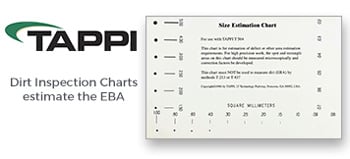The Impact Of Multiple Recycle Loops On The Yield And Properties Of Softwood Kraft Fibers And Of Non-wood Fibers For Packaging
ABSTRACT
The impacts of repeated recycles of paper on the strength and yield of the recycled pulps which determine the number of possible uses of the fiber are critical in estimating the environmental impacts and the sustainability of different raw fiber materials. The purpose of this study was to investigate the effects of multiple recycle loops on unbleached kraft pulp (UBKP), hemp (HE), and wheat straw (WS) pulps. The lab-scale recycle loops included a refining step to reflect mechanical actions occurring during recycling and allowed a loss of material during handsheet making which reflects fines loss during recycling and papermaking. After determining the initial fiber characteristics of each pulp, the results showed that UBKP represents a long wood fiber (2.71 mm, length weighted) , whereas HE (0.7 mm) and WS (0.83 mm) represent short non-wood fibers. The virgin pulps were also different in responding to1 refining. For 750 revolutions in a PFI mill the HE showed a decrease in freeness of 0.107 mL CSF/revolution, for the WS of 0.387 mL CSF/revolution but for the UBKP only a 8.7x10-3 mL CSF/revolution. This indicates that the UBKP should be able to withstand the mechanical actions of recycling much better than the HE or WS. Ring crush index and tensile index both showed a significant decrease after the first recycle for all three pulps, but after that there was almost no change. It is concluded that produced paper strength is not the limiting issue for ultimate numbers of recycling. The refining action was critical in the experiments, especially for HE and WS. Tracking recycling yield over a number of recycling loops, the lab-scale average fiber yield for UBKP was 97% and for HE and WS was lower than 70%. This suggests that the UBKP fiber would be exhausted after 37 cycles, in contrast to HE and WS, which would be exhausted after 5 cycles for the HE and 2 cycles for the WS. This indicates that yield is the limiting factor for number of recycles for different fibers. These yields upon recycling are critical in the environmental evaluation of different types of fibers for papermaking.
Keywords: Multiple recycle loops, Unbleached kraft pulp (UBKP), Hemp (HE), Wheat straw (WS), Yield
TAPPI conference proceedings and presentations, technical papers, and publication articles provide technical and management data and solutions on topics covering the Pulp, Paper, Tissue, Corrugated Packaging, Flexible Packaging, Nanotechnology and Converting Industries.
Simply select the quantity, add to your cart and your conference paper, presentation or article will be available for immediate download.





